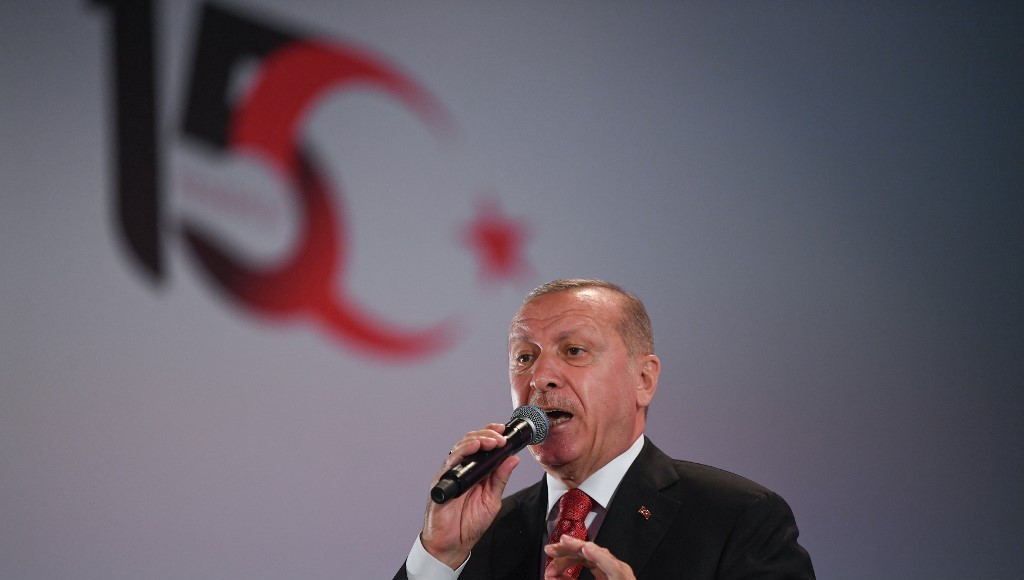A failed coup against Turkish President Recep Tayyip Erdoğan five years ago Thursday unleashed a sweeping crackdown that reshaped the strategic NATO member’s political makeup and relations with the West.
Here is a timeline of main developments since the night a group of renegade soldiers rebelled.
Purges
Some 250 people die in the mayhem that erupts on the night of July 15, 2016, which includes air strikes on parliament in Ankara.
Over the following two days, hundreds of generals, judges and prosecutors are arrested.
Erdoğan blames the putsch on exiled Muslim cleric Fethullah Gülen, a former ally turned arch-foe, and demands his extradition from the United States.
The purges widen to include the police, education system, trade unions and the media, along with the pro-Kurdish movement, critical media and NGOs.
Since then tens of thousands of people have been arrested and over 140,000 sacked or suspended from jobs in the public sector and universities. Dozens of media outlets have been closed.
‘One-man rule’
Erdoğan gets sweeping new powers after an April 2017 referendum in which Turks narrowly approve the creation of an executive presidency that political opponents say will lead to “one-man rule.”
All-powerful president
Erdoğan wins the first new-look presidential election in June 2018, with his Islamist-rooted Justice and Development Party (AKP) holding its overall majority in parliamentary elections the same day with help from ultra-nationalist allies.
İstanbul lost
The AKP wins most votes nationwide in March 2019 local elections, but loses control of the capital Ankara and of powerhouse İstanbul.
Erdoğan claims irregularities and the results are annulled.
But opposition candidate Ekrem İmamoğlu wins again in a June re-run in İstanbul, by a much bigger margin.
Erdoğan’s ‘night watchmen’
A controversial law in June 2020 grants police-like powers to neighborhood “night watchmen” patrols, leading critics to accuse Erdoğan of trying to build a militia.
Weeks later lawyers protest a government plan to shake up the bar associations, which they say is aimed at silencing dissent and politicizing their profession.
Social media muzzle
Turkey cracks down on social media in late July with a law that human rights groups warn could lead to censorship.
Civil society hit
In December the constitutional court rules that the three-year detention without conviction of philanthropist and civil society leader Osman Kavala is legal.
His incarceration, like that of the leader of the pro-Kurdish Peoples’ Democratic Party (HDP) Selahattin Demirtaş — jailed since 2016 — is seen as a symbol of Turkey’s slide into political repression.
On March 9, 2021, Turkey pulls out of the İstanbul Convention, the first binding international treaty to prevent and combat violence against women.
Super trials
In what is billed as the last of the super trials in Ankara, 32 former soldiers are jailed for life on April 7.
According to official figures the courts have to date sentenced 4,500 people, giving nearly 3,000 of them life sentences.
AFP


